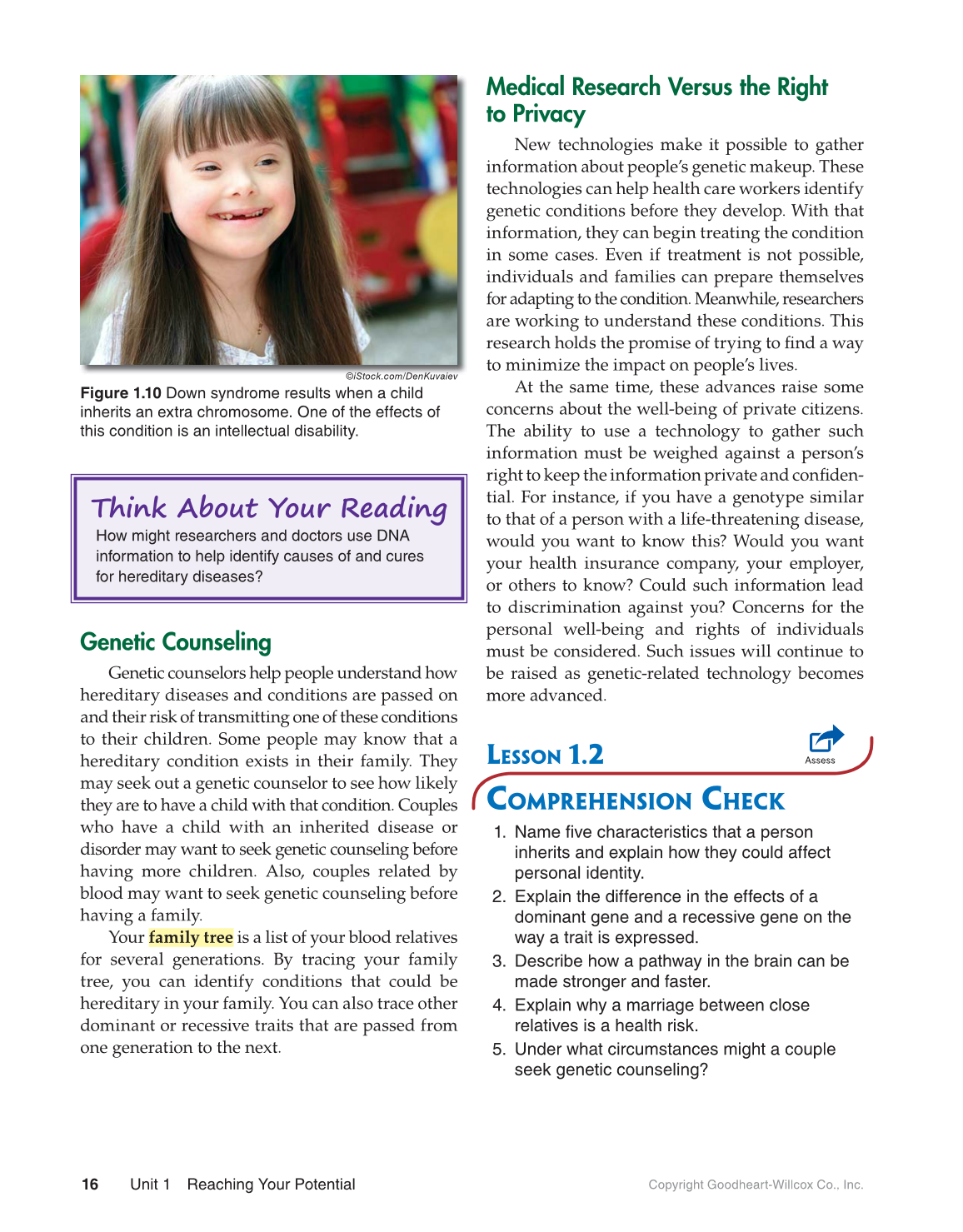16 Unit 1 Reaching Your Potential
Medical Research Versus the Right
to Privacy
New technologies make it possible to gather
information about people’s genetic makeup. These
technologies can help health care workers identify
genetic conditions before they develop. With that
information, they can begin treating the condition
in some cases. Even if treatment is not possible,
individuals and families can prepare themselves
for adapting to the condition. Meanwhile, researchers
are working to understand these conditions. This
research holds the promise of trying to fi nd a way
to minimize the impact on people’s lives.
At the same time, these advances raise some
concerns about the well-being of private citizens.
The ability to use a technology to gather such
information must be weighed against a person’s
right to keep the information private and confi den-
tial. For instance, if you have a genotype similar
to that of a person with a life-threatening disease,
would you want to know this? Would you want
your health insurance company, your employer,
or others to know? Could such information lead
to discrimination against you? Concerns for the
personal well-being and rights of individuals
must be considered. Such issues will continue to
be raised as genetic-related technology becomes
more advanced.
LESSON 1.2
Assess
COMPREHENSION CHECK
1. Name five characteristics that a person
inherits and explain how they could affect
personal identity.
2. Explain the difference in the effects of a
dominant gene and a recessive gene on the
way a trait is expressed.
3. Describe how a pathway in the brain can be
made stronger and faster.
4. Explain why a marriage between close
relatives is a health risk.
5. Under what circumstances might a couple
seek genetic counseling?
Genetic Counseling
Genetic counselors help people understand how
hereditary diseases and conditions are passed on
and their risk of transmitting one of these conditions
to their children. Some people may know that a
hereditary condition exists in their family. They
may seek out a genetic counselor to see how likely
they are to have a child with that condition. Couples
who have a child with an inherited disease or
disorder may want to seek genetic counseling before
having more children. Also, couples related by
blood may want to seek genetic counseling before
having a family.
Your family tree is a list of your blood relatives
for several generations. By tracing your family
tree, you can identify conditions that could be
hereditary in your family. You can also trace other
dominant or recessive traits that are passed from
one generation to the next.
How might researchers and doctors use DNA
information to help identify causes of and cures
for hereditary diseases?
©iStock.com/DenKuvaiev
Figure 1.10 Down syndrome results when a child
inherits an extra chromosome. One of the effects of
this condition is an intellectual disability.
Copyright Goodheart-Willcox Co., Inc.
